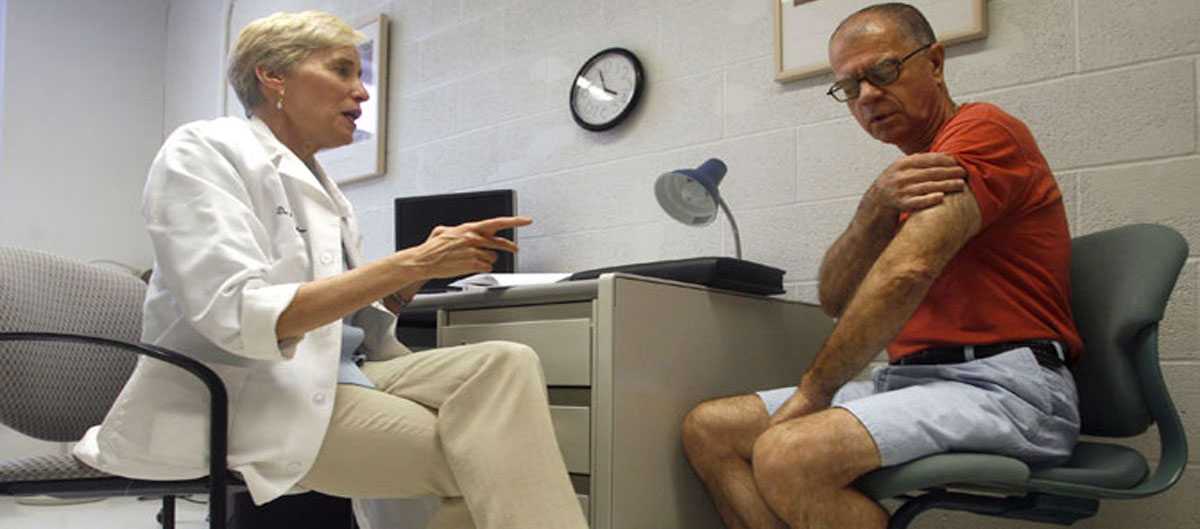
During the dwindling days of summer and into fall, Iowans rolled up their sleeves at UI Hospitals and Clinics to receive a shot of an experimental vaccine meant to offer protection against the H1N1 virus.
The National Institutes of Health (NIH) selected the university as one of eight sites to test vaccines for H1N1, the potentially dangerous flu virus that made international headlines this past spring when hundreds of people in Mexico and the U.S. first began to get sick. On a more local level, the UI also launched a public awareness campaign to educate campus about the prevention, symptoms, and treatment of H1N1.
Nationwide, by early fall the NIH testing sites had enrolled around 2,000 people of all ages in H1N1 vaccine studies; at the UI, about 170 healthy adults received shots in an initial trial. Participants also agreed to a series of blood draws to determine whether the vaccine prompted the creation of disease-killing antibodies.
The tests were intended to determine an effective vaccine dosage and how many times it should be administered. The U.S. Food & Drug Administration used interim data from the NIH and other pharmaceutical trials to develop recommendations, and, by mid-September, the UI received word that the FDA had approved a single, 15 microgram dose of H1N1 vaccine for healthy adults. Studies were still under way to determine the right dosing for pediatric patients.
Since its emergence, H1N1 has hit younger people, including college-aged adults, especially hard. For the most part, the virus causes mild illness with symptoms such as fever, aches, chills, runny nose, and cough— similar to those of any seasonal flu. However, it has the potential to mutate and become as deadly as the virus that caused the 1918 flu pandemic and killed millions of people worldwide. Fortunately, the vast majority of people who contract H1N1 recover on their own, although health experts will be watching to see if the virus grows more serious as the season progresses.
By all accounts, the UI seems prepared for a flu outbreak. Back in May, the UI's Critical Incident Management Committee developed an almost 460- page pandemic influenza response plan. So far this season, officials have established an influenza website, www.uiowa. edu/flu, and have sent e-mails and letters with critical information to students, parents, faculty, and staff. UI experts advise everyone to receive a standard flu shot, stay home when ill, cover mouths during coughs and sneezes, and wash hands frequently.
Administrators have also modified the UI's absence policy. Students will not be penalized for flurelated absences; instead, they must complete a form found on the UI's flu website and return that to their instructors. Similar modifications have been made for flu illness among faculty and staff. UIHC issued a mandate requiring all hospital employees to get a flu shot, and the College of Nursing is also requiring students who participate in fall and spring clinics to receive immunization.
Nationally, doses of H1N1 vaccine were expected to be ready by the middle of October in limited supply. Vaccine will be first administered to children, pregnant women, healthcare workers, and people with chronic medical conditions. Although even the UI's medical experts can't predict exactly how the H1N1 epidemic will develop, knowledge and common sense will be critical in navigating this unprecedented flu season.

